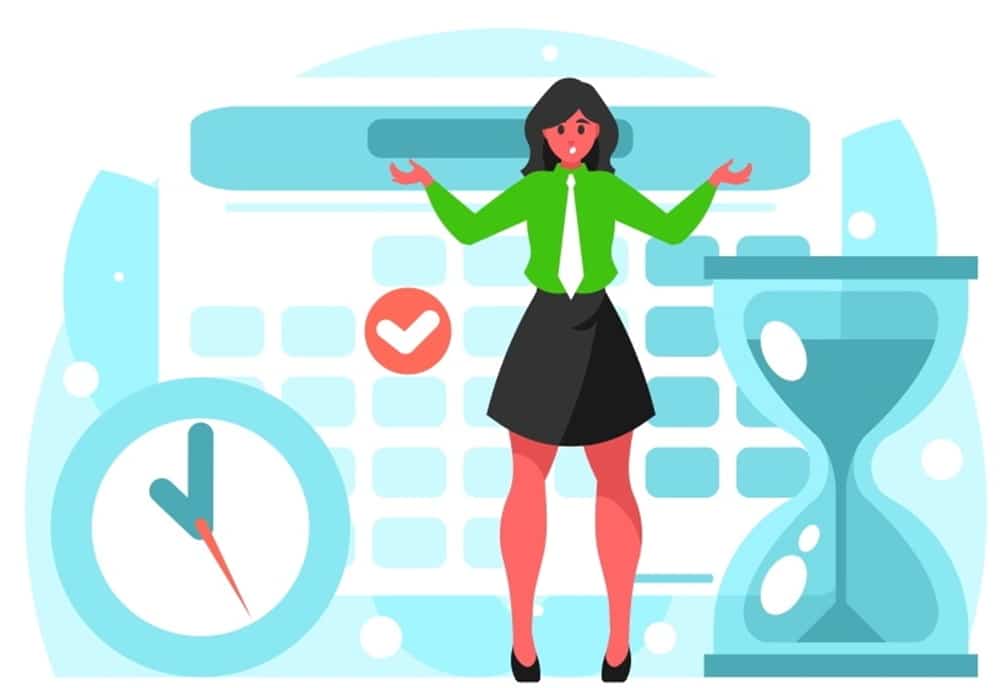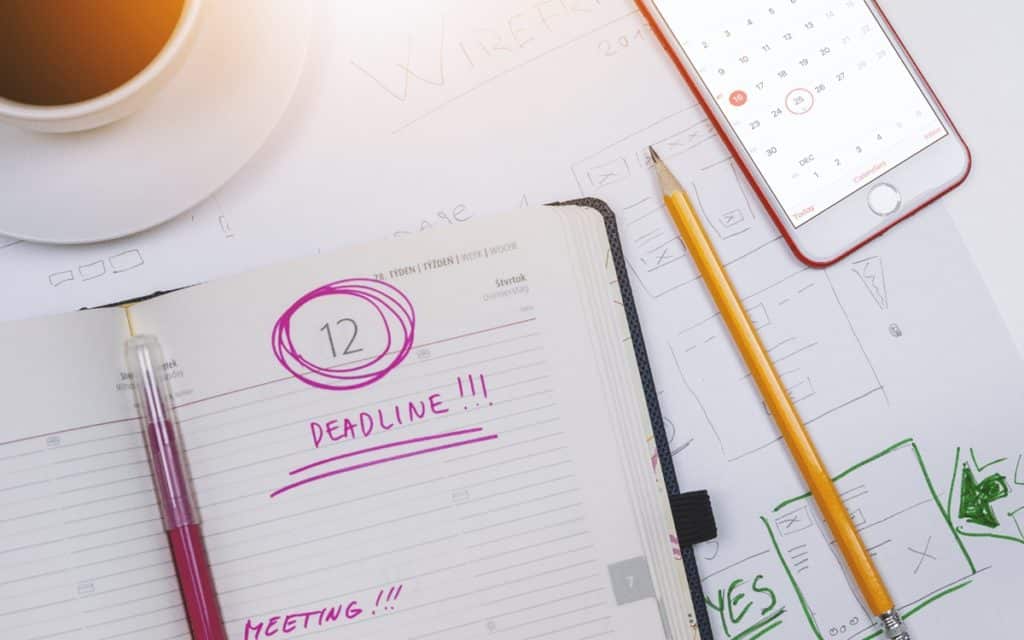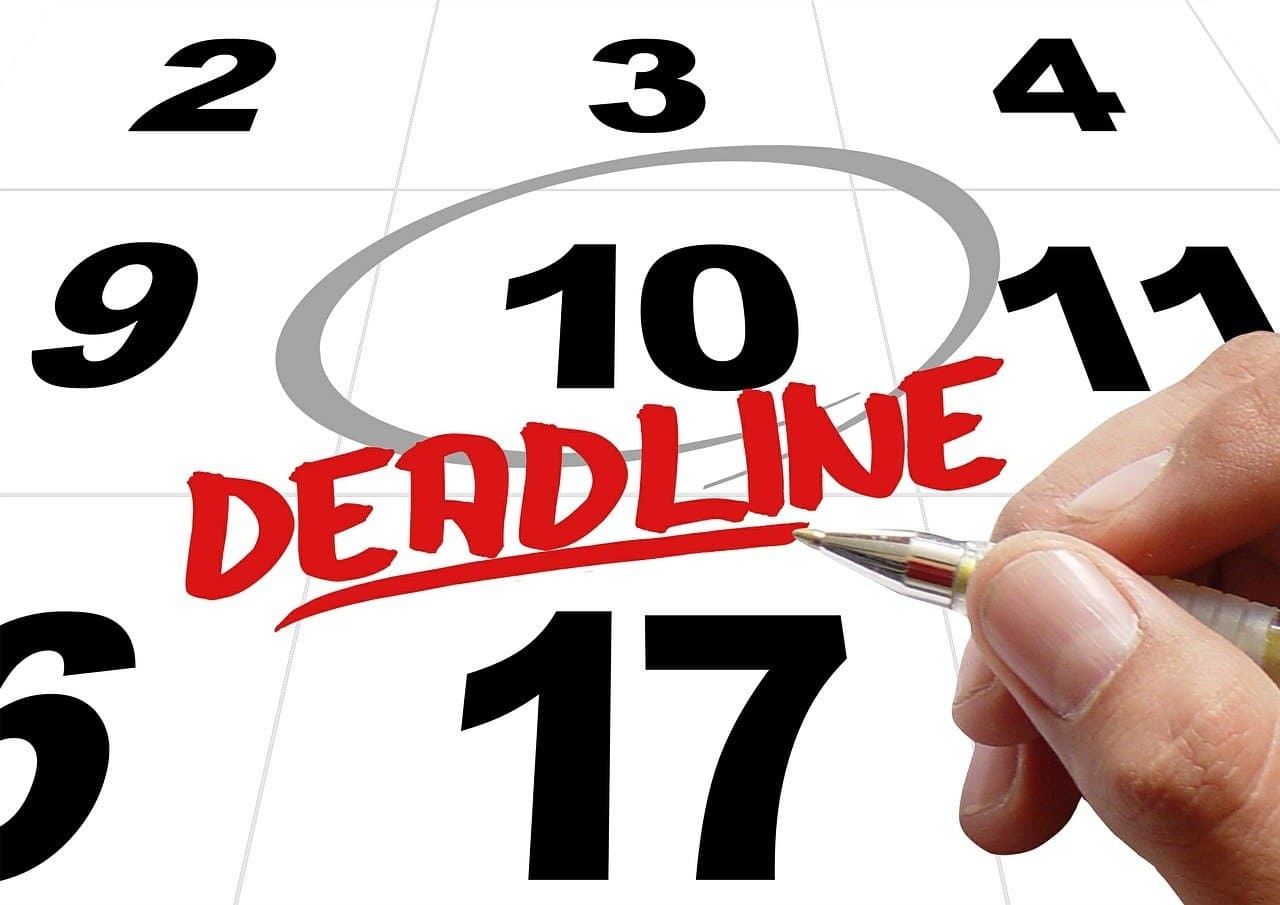In the vibrant mosaic of contemporary life, deadlines stand as prominent landmarks guiding our journey through an extensive matrix of tasks, obligations, and aspirations. They are more than mere time markers; they provide an essential framework that enables us to navigate the seas of commitments, calibrate our efforts, and quantify our progress.
Yet, as we ascend to the zenith of a creative revolution, where novel ideas and innovative solutions fuel the engines of growth, it becomes increasingly crucial to examine the role of deadlines in the creative process. Are these time-bound markers stifling the very wellsprings of our ingenuity, or could they be the catalysts that ignite the spark of creativity? This comprehensive guide seeks to explore this intriguing dichotomy, offering insights into the complex and nuanced relationship between deadlines and creativity. So, let’s find out do deadlines ruin creativity.
The Dual Role of Deadlines in Creativity
The influence of deadlines on creativity is akin to the transformative power of pressure on carbon: the right amount can metamorphose a nondescript substance into a priceless diamond, while an excessive force could crush it to dust. This insightful analogy illustrates the double-edged nature of creativity.
On one hand, creativity blossoms in environments of freedom and seemingly chaotic experimentation. It requires room to breathe, to explore, and to make mistakes.
Yet, on the other hand, creativity isn’t merely about uncontrolled divergence. It needs structure and constraints to give it form and purpose. Deadlines can provide these boundaries, but when they become overwhelming, the pressure might kill the creative spirit instead of nurturing it.

Advantages of Deadlines: Fueling the Creative Engine
Deadlines, when appropriately set and managed, can act as compelling stimulants for creativity. Their effect can be likened to a powerful fuel, one that feeds the creative engine and helps drive it to heights of ingenuity that might have otherwise remained untapped.
One of the most prominent advantages of deadlines is the sense of urgency they instill. This urgency can effectively narrow down our focus, helping us to streamline our thoughts, prioritize our tasks, and utilize our resources more efficiently. By establishing a clear endpoint, deadlines lay down a definitive path, offering a structural framework that directs our creative energies towards achieving a tangible objective. This ability to focus is particularly valuable when we are swamped with a myriad of ideas, and it’s difficult to decide where to start. Deadlines provide a starting point and a finish line, framing our creative efforts within a manageable timeframe.
Furthermore, the psychological impact of an approaching deadline often triggers an adrenaline rush. This intense experience, akin to a mental ‘fight or flight’ response, can significantly enhance our cognitive abilities, enabling quick problem-solving and fostering innovative thinking. The looming deadline can make us think outside the box, pushing us to find unique solutions in a bid to beat the clock. This heightened state of alertness and the accompanying rush can lead to eureka moments, birthing ideas and solutions that might have otherwise been overlooked.
Deadlines also foster accountability and discipline, two key ingredients in the recipe for creative success. Knowing that a project or task needs to be completed within a specific timeframe encourages us to work diligently and persistently, qualities that are vital for any creative pursuit. Deadlines can keep procrastination at bay, thereby ensuring a consistent engagement with our creative work.
Moreover, deadlines can motivate us to make decisions and move forward. In the realm of creativity, it’s easy to get stuck in a loop of endless refinement, forever chasing the mirage of perfection. Deadlines, however, compel us to take decisive action, to choose one idea over another, and to bring our creative visions into reality.
Lastly, deadlines can facilitate a sense of accomplishment and progress. Each met deadline is a step forward, a small victory that boosts our confidence and validates our creative abilities. This can be an invaluable source of motivation, fueling our passion to create and innovate further.
The Drawbacks of Deadlines: The Creativity Suppressors
Despite their potential to stimulate creativity, deadlines can, in some cases, also inhibit our creative spirit. The very characteristics that make deadlines effective – their sense of urgency, their demand for focus, and their inexorable ticking – can sometimes become counterproductive, suppressing rather than promoting creativity.
A significant drawback of deadlines lies in the stress and anxiety they often induce. Creativity, by its very nature, thrives in an environment of calm and tranquility, where the mind is free to wander and explore new avenues of thought. However, an impending deadline can create a state of hyper-focus, making us overly conscious of the ticking clock. This heightened state of stress can result in a ‘tunnel vision’ effect, where our field of vision narrows down, limiting our ability to think broadly and approach problems from different angles. Instead of fostering out-of-the-box thinking, deadlines can lead us to resort to safe, tried-and-tested solutions just to meet the time constraints.
In addition to causing stress, deadlines can also compromise the incubation period, a vital phase of the creative process. During the incubation period, our subconscious mind continues to process and refine ideas, often leading to valuable insights and breakthroughs. However, under the pressure of a looming deadline, we may not afford ourselves this vital time to let ideas percolate and mature, rushing instead to produce a result, which can lead to superficial and less innovative outcomes.
Deadlines can also stifle experimentation, an essential element of creativity. When working against the clock, we’re less likely to take risks or explore unconventional paths. The fear of wasting time and failing to meet the deadline may deter us from trying novel approaches or learning new skills, both of which could potentially lead to more creative solutions.
Moreover, deadlines can contribute to burnout, particularly when they are unrealistic or too tightly packed. Consistent high levels of stress and pressure can lead to physical and mental exhaustion, reducing our capacity for creative thought and undermining our overall productivity and wellbeing.
Lastly, the focus on achieving results within a strict timeframe can sometimes divert our attention from the process itself, turning a creative task into a mere item to be checked off a list. This shift in focus from process to product can diminish the joy of creation, making it a stressful chore rather than an engaging, enriching experience.

Striking the Balance: Harnessing Deadlines for Creative Success
The delicate dance between deadlines and creativity requires a harmonious balance, a sweet spot that combines the liberating spirit of creativity with the grounding reality of time constraints. Techniques such as time-blocking, where certain time slots are dedicated to focused, deadline-driven work and others for unrestrained ideation, can help strike this balance. Additionally, fostering a growth mindset is essential.
This perspective embraces challenges as opportunities for growth, maintains a positive attitude towards stress, and reframes deadlines from daunting obstacles to useful prompts for creativity. The goal isn’t to escape deadlines but to use them as strategic tools to stoke the flames of creativity rather than dousing them.
Conclusion
In conclusion, does the tick-tock of deadlines annihilate the flame of creativity? The answer is not binary. It delicately teeters on the individual’s response to pressure, the contextual factors surrounding the creative endeavor, and the manner in which deadlines are implemented and navigated. Deadlines can serve as both a stimulant and an inhibitor to creativity. They can spark a sense of urgency that drives innovative problem-solving, yet they can also instigate a level of stress that inhibits fresh, groundbreaking thinking.
The key doesn’t lie in eliminating deadlines from our lives; instead, it’s about wielding them skillfully and mindfully. Properly harnessed, deadlines can unlock our creative potentials rather than limit them. The challenge is not in the unyielding passage of time, but in how we choreograph our imaginative ballet to its rhythm.
